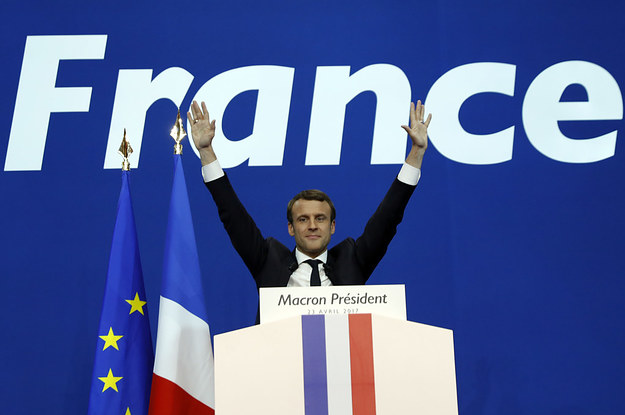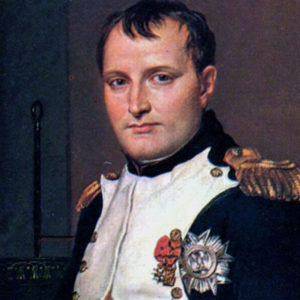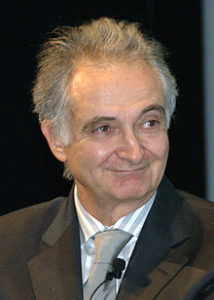
Vive la France!
In the presidential election in France this Sunday, by almost 2 to 1, voters emphatically rejected the politics of ultra-right, xenophobic nationalism.
Running a campaign independent of the two main political parties that have alternated in power in France for the last six decades, Emmanuel Macron, virtually unknown to the world and even to the French people as late as a year ago, beat Marie Le Pen, the candidate of the ultra-right National Front party, by 66 to 34 percent.
When he assumes power a week next Sunday, Macron, at 39, will become the youngest French leader since Napoleon Bonaparte. That’s a tour de force for a relative newcomer to Paris who hails from Amiens and never before ran for office.

The French election is easily the most consequential political contest in the world this year. It was a test of whether nationalist right-wing populism had become an unstoppable global tide following the victory of Brexit in Britain (exit from the European Union) and of Donald Trump in the United States. In addition, a Le Pen win in France would have been a major step toward the unraveling of the European Union as well as a triumph for xenophobia comparable to that last November in the United States.
On some levels, the French election may be more significant than the last U.S. election. The United States is by far the most powerful country in the world. Its global reach is much greater than France’s on many dimensions, especially military and economic. But the United States is for this and many other reasons an outlier among developed countries.
Probably the most crucial difference is that during the twentieth century, unlike the other rich nations, the United States never developed a real social safety net. Moreover, for decades the Republicans have been systematically trying to tear apart what little there is of a safety net in this country. They have often succeeded in this ignoble endeavor.
The only significant expansion of the safety net since the 1960s is Obamacare, and last week the Republicans in the House of Representatives voted to repeal it.
The United States also has a higher level of economic inequality than any of its peer nations. Repeal of Obamacare, the Trump budget and the proposed changes in the tax system would all further increase the level inequality, to unimaginable levels.
By contrast, even under the right-wing government of Margaret Thatcher in the United Kingdom, abolishing the National Health Care Service—unlike Obamacare a true example of a successful, comprehensive, universal, government-run system of health care—was never an option. The Iron Lady was not interested in committing political suicide.
There is a reason, therefore, why some informed foreign observers have spoken of the United States as the Right nation. The point is that it would be wrong to consider Trump’s election as an indicator of a trend in the global mindset. At most, it should be seen as an instance of American exceptionalism.
In fact, the Trump election, while a troublesome indicator of political attitudes in this country, does not even represent the sentiments of most of the American people. Donald Trump did not win democratically, that is by a majority of the popular vote nationally, which he lost to Hillary Clinton by millions.
Trump won on the political equivalent of a legal technicality, specifically the archaic and undemocratic institution of the Electoral College. The Electoral College, put into place by the Founding Fathers who were afraid of too much democracy, can transform the loser in the popular vote into a supposedly democratically-elected president.
It is through this twisted pathway, paved by an institution that is a relic of eighteenth century mentalities, that the last two Republican presidents, George W. Bush and Donald Trump, first made it into the White House.

While Macron’s triumphant campaign has one similarity to Donald Trump’s—they both ran as outsiders to the two-party establishment—in every other way Macron is the antithesis of Donald Trump.
Suffice to say that unlike Trump, who talked against the establishment but ran and is governing with the most truculent of the establishment’s political parties, Macron is a real independent.
Suffice it to say that Macron won by an overwhelming vote of the French people.
Suffice it to say that one of Macron’s advisers and sponsors for years has been the economist and activist Jacques Attali, the principal proponent of a global tax on monetary speculation to fund global policing of financial transactions. This idea is antithetical to Trump’s recent action to once again decrease regulation of the U.S. financial system.
For what it’s worth, suffice it to say that Macron, a young, handsome, bright, intellectually sophisticated man, has a wife that is more than twenty years his senior.
Suffice it to say, that with Emmanuel Macron we are dealing with a far different mettle of man than with Donald Trump. If only…
The Macron victory gives us hope that regression toward the meanest is not a universal trend.
We will endure. We will prevail.
Meanwhile, thanks to the French people.
Vive la France!


